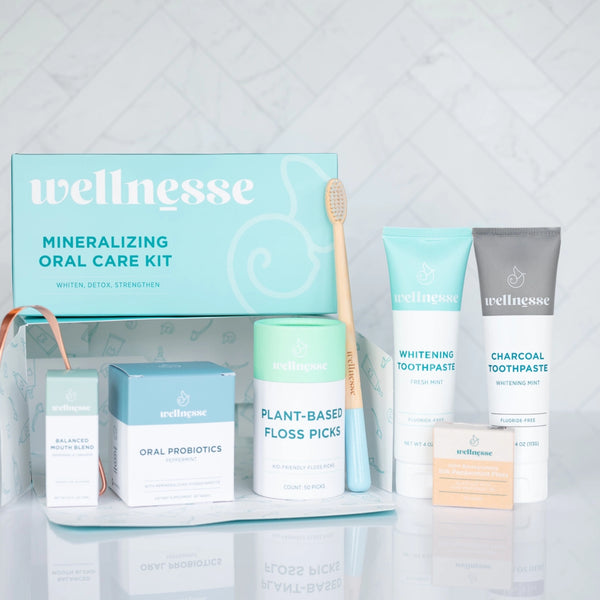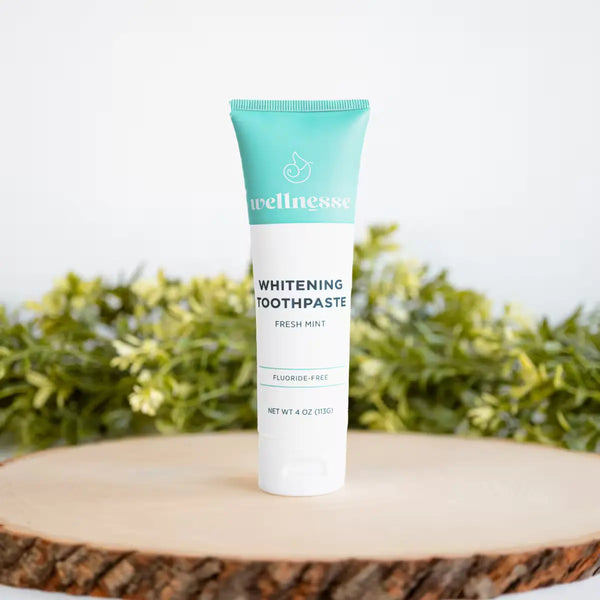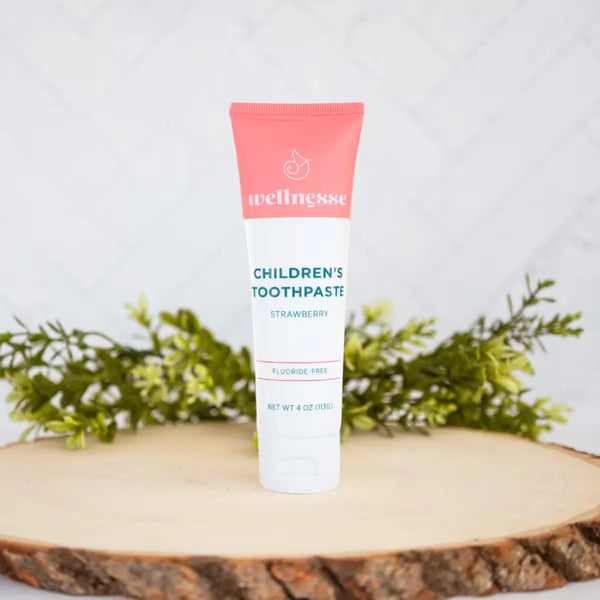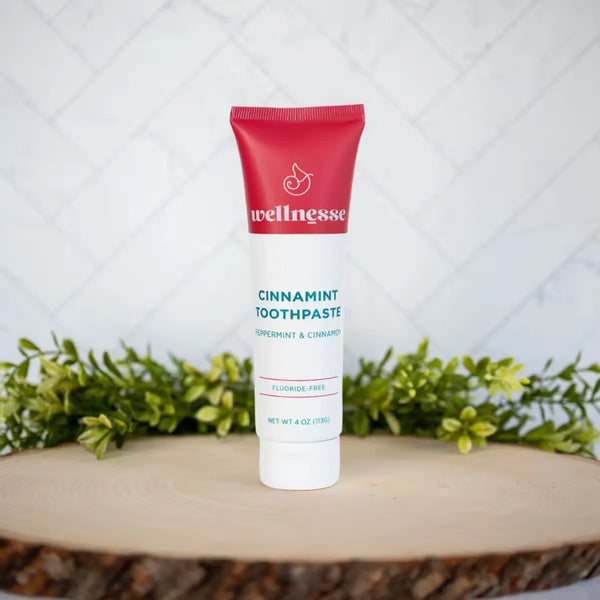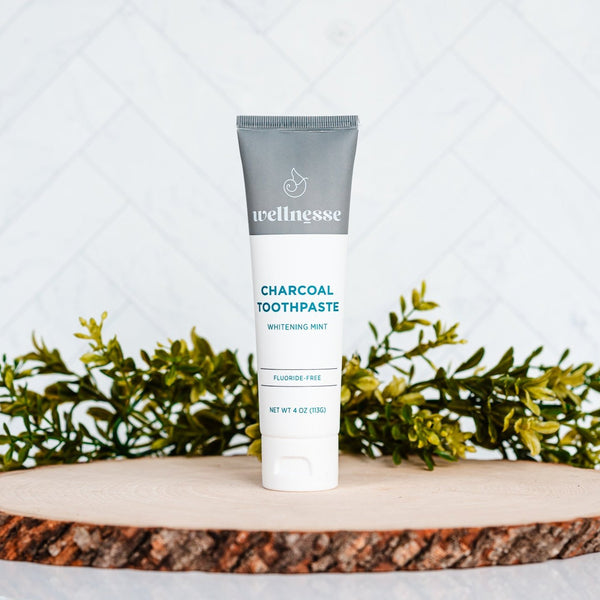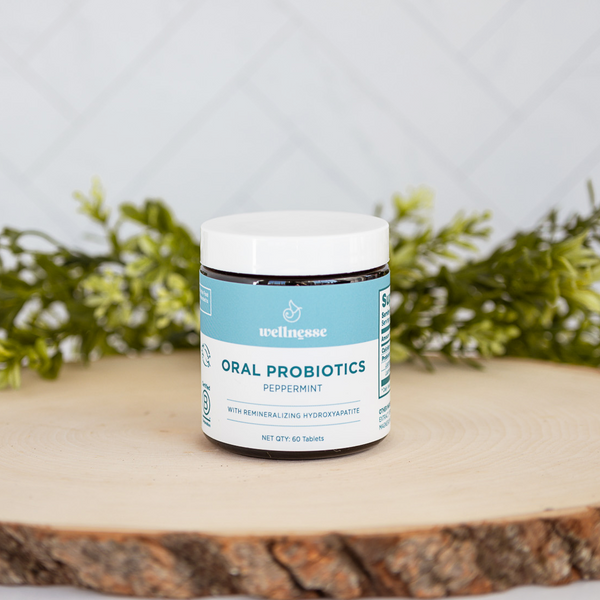Brushing our teeth twice a day is a habit that most of us don't give a second thought. It's so ingrained in our morning and evening routines that we don't even think about it anymore.
Regular brushing is essential to keep our teeth clean and our gums healthy. But even the most thorough go-over with the toothbrush can't get to every nook and cranny. Those tight spaces between our teeth are particularly tricky, and it is easy for plaque to build up here. In fact, brushing only cleans about 70% of the surface of the teeth!
The solution is a simple one: Floss. The American Dental Association recommends cleaning our teeth once a day with floss or another form of interdental cleaner. "Floss every day" isn't ground-breaking advice; we've heard it from our dentists since we were kids. However, knowing we should do something and doing it aren't necessarily the same.
Most conventional flosses are made from cheap, plastic thread - switch to our Peppermint Floss, made from pure silk!
According to survey data published in 2018 in The Journal of Periodontology, only around 31% of Americans over 30 floss daily. An even higher percentage of people admitted they don't even floss once a week. In some ways, this is no surprise. We've been told that flossing is essential, but it's time-consuming, tedious, and can be uncomfortable. At the end of a long, exhausting day, it can be tempting to let flossing slide to save time.
However, daily flossing is an essential part of keeping our teeth and gums clean and healthy, and not keeping up with our oral hygiene can also have consequences for our overall health. Today, we're going over the benefits of flossing and why it should be a daily part of everyone's routine.
The Benefits of Flossing
Just like brushing, regular flossing is vital in keeping our teeth, gums, and tongue healthy. Tiny pieces of food can easily become trapped between our teeth and are difficult to dislodge through brushing alone. While we'll hopefully see and remove any larger pieces (avoiding the classic spinach-in-the-teeth scenario), any food we miss combines with saliva and creates the conditions for plaque to form.
What is plaque, exactly? The sticky, bacteria-based film that builds up on the teeth in between brushes. When we eat or drink, especially foods or liquids that contain sugar, these bacteria release acid that attacks the teeth, specifically the tooth enamel. Left unchecked, this process sets the stage for cavities and tooth decay.
One of the primary reasons we're told to brush our teeth twice a day is to remove plaque before it can cause damage to our teeth. Frequent brushing also stops the plaque from hardening into tartar. The American Dental Association warns that tartar makes it harder to keep our teeth clean and can lead to gum disease, as it can form at, above, and even underneath the gum line.
Early gum disease, called gingivitis, causes red, swollen gum tissue. It can also result in bad breath and bleeding gums when cleaning your teeth. If left untreated, gingivitis can worsen, eventually developing into periodontitis. Periodontitis is an inflammatory form of gum disease that can cause issues beyond just your dental health (more on that in a second!)
As you can see, regular cleaning is vital if we want to avoid plaque build-up, cavities, and gum disease. But since brushing on its own won't remove plaque between our teeth, flossing is a daily necessity to protect our teeth and mouths.
Some of the benefits of flossing include:
- Removing plaque
- Fighting bad breath
- Preventing tartar build-up
- Reducing the risk of cavities
- Decreasing the likelihood of developing gum disease
And let's not forget benefit #2 -- fighting bad breath. The bacteria that accumulate in our mouths aren't only bad news for our teeth; they're also one of the main sources of breath. The food particles trapped between our teeth attract bacteria, which produce waste products that produce odor.
By flossing regularly, we eliminate the bacteria that cause most of the dental issues we spend our time and effort trying to avoid. However, as we mentioned previously, the benefits of flossing extend far beyond just good oral health.
Flossing and Heart Health
According to data published by the National Center for Health Statistics, heart disease remains America's leading cause of death. And there's a growing body of research that suggests a link between our oral health and the health of our hearts and cardiovascular systems.
Multiple studies have found a correlation between poor oral hygiene and the risk of having a heart attack. One large-scale Australian study published in 2016 analyzed data from 172 630 people and concluded that those who reported poor oral hygiene were at higher risk of heart disease. Similarly, a 2018 study looking at adults in America found that those with gum disease were more likely to have issues with blood pressure and were less likely to respond well to treatment.
So far, the jury is still unsure of the exact relationship between heart disease and oral health. Because gum disease is relatively common (and sadly, so is heart disease), some still suggest the link could be coincidental instead of causal.
Needless to say, there is still some way to go in establishing the exact nature of the connection between oral health and heart problems. However, many in the medical community believe there is more than sufficient evidence to establish a link. As a result, most accredited institutions, including the American Heart Association, advise people to look after their oral hygiene to protect their overall health and well-being.
Some suspect that inflammation may be the link. Advanced gum disease is an inflammatory condition, and inflammation is the mechanism that underlies many chronic diseases, including heart disease, stroke, diabetes, Alzheimer's, and rheumatoid arthritis. The theory is that inflammation in the mouth - which is connected to all the other body systems - may put us at higher risk for diseases with the same underlying causes.
While further research is needed, if taking care of your teeth - which you should be doing anyway - can help us to reduce your risk of these diseases, it seems like a no-brainer. Taking a few extra minutes once a day to floss and brush is a small sacrifice to make for our long-term health.
When to Floss
The good news is that, according to the American Dental Association, you only need to floss once a day, as long as you do it at the same time as you brush your teeth.
Since flossing adds a few extra minutes to our bathroom routine, those rushing to get children out of the house in the morning might find it easiest to do it at night. On the other hand, if you are exhausted in the evenings and want to avoid another step in your bedtime routine, the morning might be a better time for you.
Like any habit, finding a time of day that works for you and committing to consistent flossing will help you make this a regular part of your daily routine.
How to Floss
Break off a long piece of floss – around 20 inches or so. Wind most of it around your fingers, leaving a 1–2-inch section for your first tooth.
Keep the floss taut, holding it between your index fingers and thumbs. Use a gentle rubbing motion to move the floss between two teeth, then move it in a C shape to get it up between your teeth and gums. Don't dig it into your gum, which can cause pain.
Repeat this for each tooth, using a clean section of floss for each gap. It might feel strange or uncomfortable at first, but, like anything, flossing gets easier with practice.
Choosing a Floss
One of the issues with most conventional dental floss is that it is made of nylon, an artificial fiber derived from petrochemicals. In other words, nylon is a form of plastic. For those who try to keep our homes environmentally friendly and free from toxic chemicals, plastics like nylon are a real problem. Additionally, most flosses come in cheap plastic packaging.
If the toxic chemicals within plastic aren't enough to steer you clear of conventional floss, they also impact our environment and oceans.
Not only do plastic and nylon not break down in landfills, but the process used to make them requires loads of energy. And the manufacturing process also emits nitrous oxide, a greenhouse gas even more damaging than carbon dioxide.
At Wellnesse, we're committed to keeping our families and yours healthy, but never at the earth's expense. So, we knew we needed to come up with an alternative: an eco-friendly floss (and packaging!) that still leaves our mouths sparkling clean. And we did!
Our Pure Silk Peppermint Floss is made from just three ingredients: silk, peppermint oil, and candelilla wax. Packaged only in recyclable cardboard, our floss is a safe, non-toxic alternative to toxic, environmentally-damaging conventional floss. If thread floss isn’t the best fit for your kids (or for you), we also offer Floss Picks! With recyclable thread and a compostable cornstarch handle, our Floss Picks make flossing a breeze.
Shop our Pure Silk Peppermint Floss (along with our other oral hygiene essentials) and start caring for your family's health with products you can love and trust.
Resources
The American Dental Association, Federal Government, ADA Emphasize Importance of Flossing and Interdental Cleaners
Fleming, E. B., Nguyen, D., Afful, J., Carroll, M. D., & Woods, P. D. (2018). Prevalence of daily flossing among adults by selected risk factors for periodontal disease-United States, 2011-2014. Journal of periodontology, 89(8), 933–939. https://doi.org/10.1002/JPER.17-0572
The American Dental Association, Plaque
The Oral Health Foundation, Bad Breath
The National Center for Health Statistics, Leading Causes of Death
Joshy, G., Arora, M., Korda, R. J., Chalmers, J., & Banks, E. (2016). Is poor oral health a risk marker for incident cardiovascular disease hospitalisation and all-cause mortality? Findings from 172 630 participants from the prospective 45 and Up Study. BMJ open, 6(8), e012386. http://dx.doi.org/10.1136/bmjopen-2016-012386
Pietropaoli, D., Del Pinto, R., Ferri, C., Wright Jr, J. T., Giannoni, M., Ortu, E., & Monaco, A. (2018). Poor oral health and blood pressure control among US hypertensive adults: results from the national health and nutrition examination survey 2009 to 2014. Hypertension, 72(6), 1365-1373. https://doi.org/10.1161/HYPERTENSIONAHA.118.11528
Batty, G. D., Jung, K. J., Mok, Y., Lee, S. J., Back, J. H., Lee, S., & Jee, S. H. (2018). Oral health and later coronary heart disease: Cohort study of one million people. European journal of preventive cardiology, 25(6), 598–605. https://doi.org/10.1177/2047487318759112
The American Heart Association, Dentists are looking out for more than your teeth
Kriauciunas, A., Gleiznys, A., Gleiznys, D., & Janužis, G. (2019). The Influence of Porphyromonas Gingivalis Bacterium Causing Periodontal Disease on the Pathogenesis of Rheumatoid Arthritis: Systematic Review of Literature. Cureus, 11(5), e4775. https://doi.org/10.7759/cureus.4775
Bascones-Martínez, A., González-Febles, J., & Sanz-Esporrín, J. (2014). Diabetes and periodontal disease. Review of the literature. American journal of dentistry, 27(2), 63–67. https://europepmc.org/article/med/25000662
Nadim, R., Tang, J., Dilmohamed, A., Yuan, S., Wu, C., Bakre, A. T., Partridge, M., Ni, J., Copeland, J. R., Anstey, K. J., & Chen, R. (2020). Influence of periodontal disease on risk of dementia: a systematic literature review and a meta-analysis. European journal of epidemiology, 35(9), 821–833. https://doi.org/10.1007/s10654-020-00648-x
The American Dental Association, Flossing
Good On You, Material Guide: How Sustainable is Nylon?


